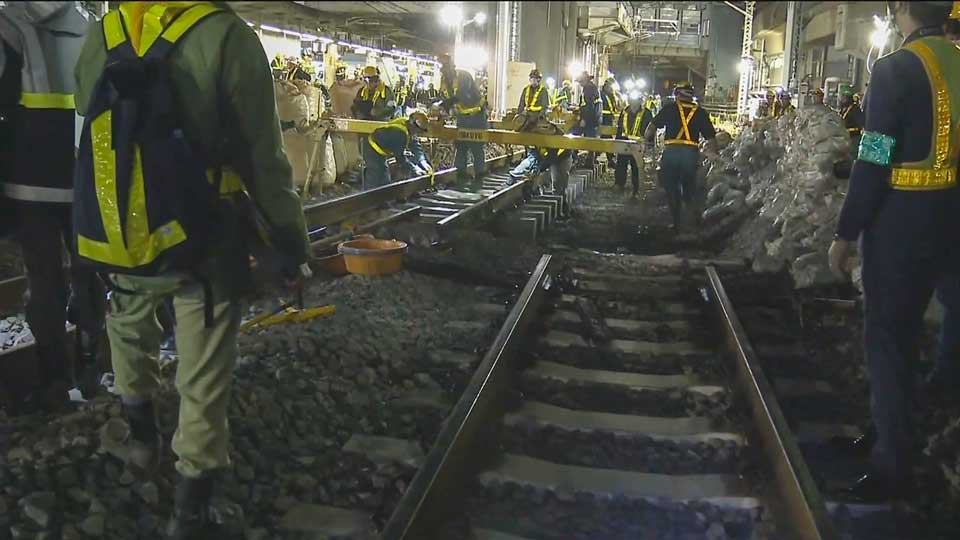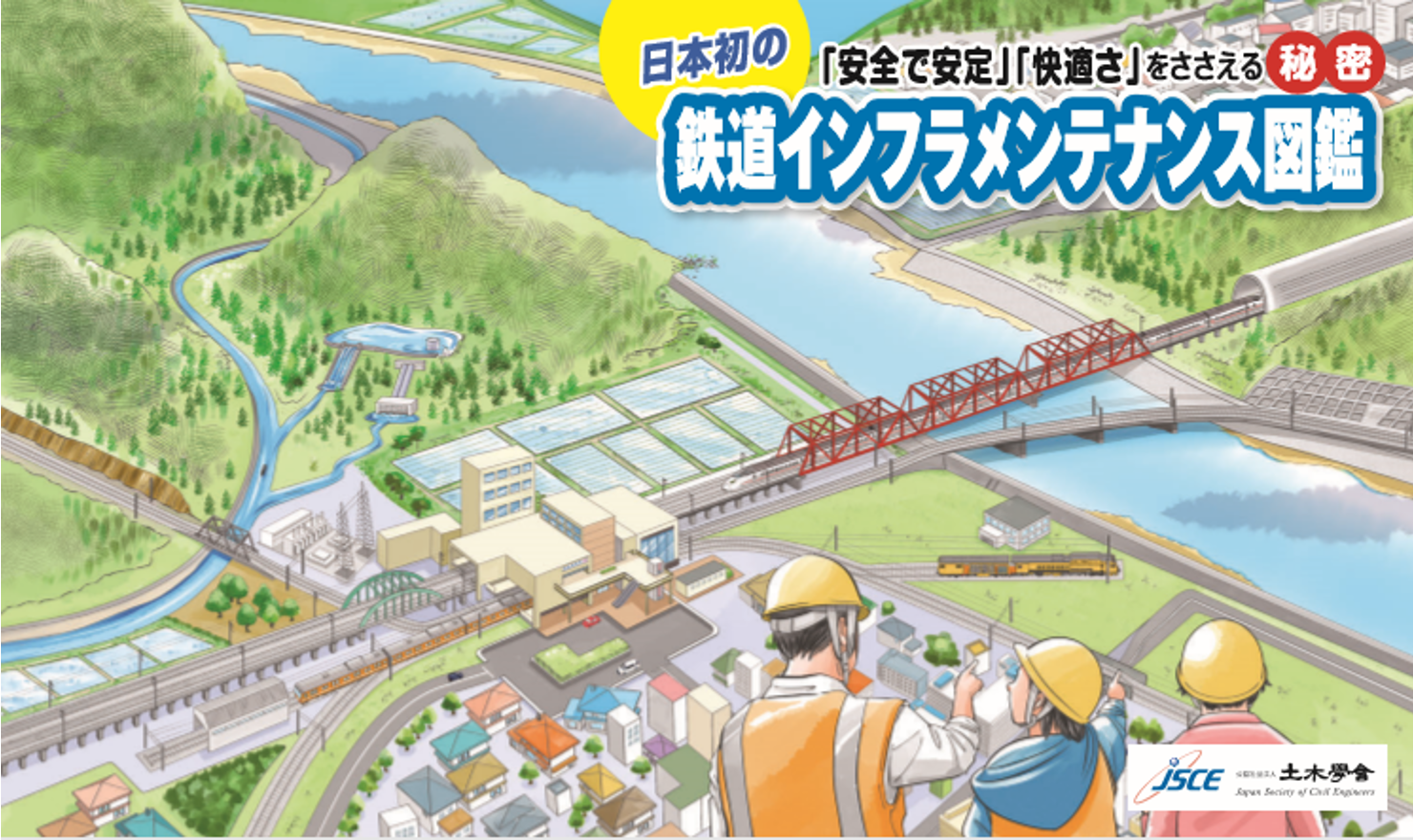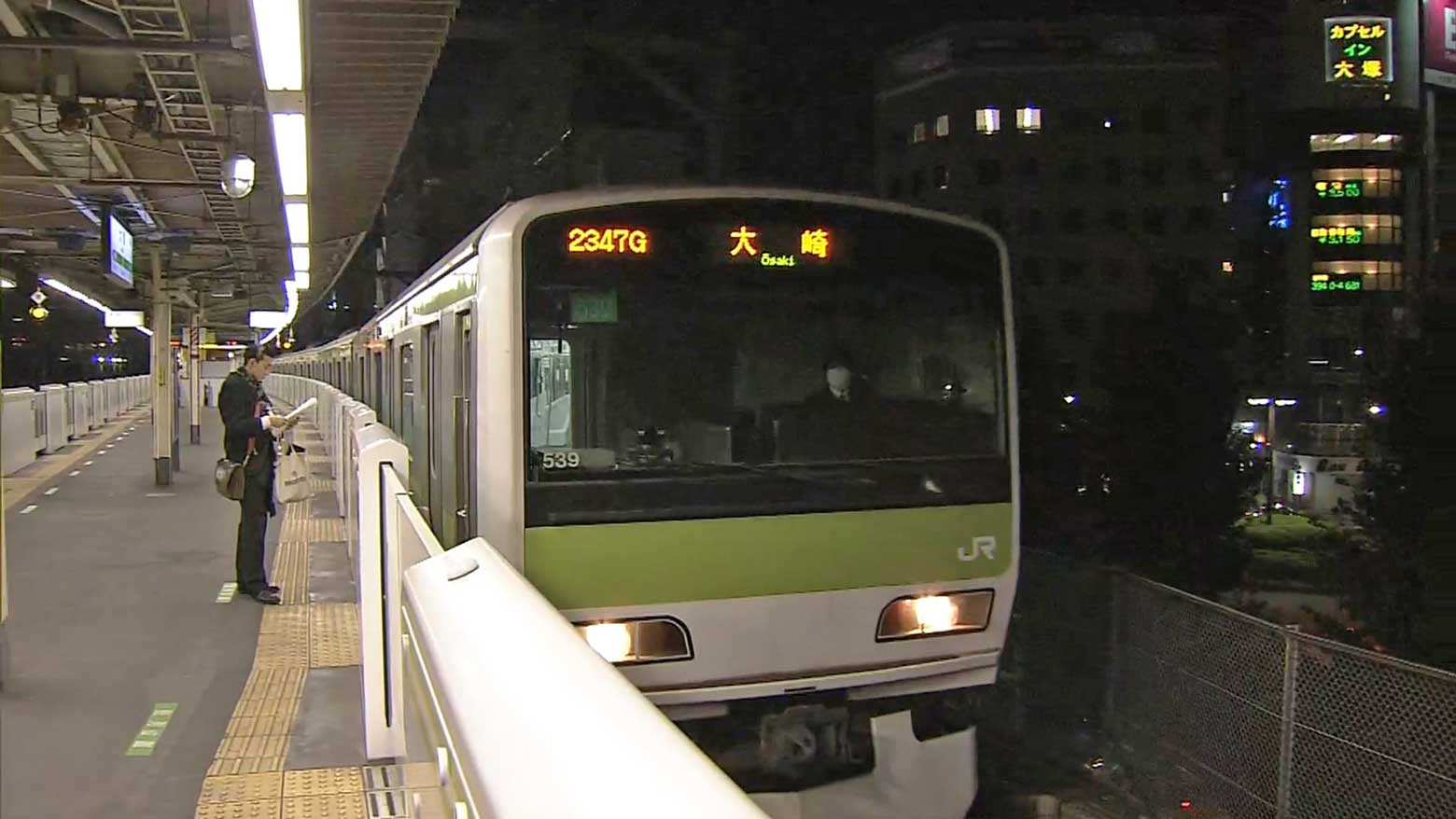East Japan Railway Company announced that, starting in March 2021, it will bring forward the last train departure times on 17 lines, including the busy Yamanote Line in Tokyo. The company says the move will affect about 20,000 people per day.
The change reflects the profound effects the coronavirus pandemic has had on public transportation. As companies increasingly adopt work-from-home policies and people refrain from going out to bars and restaurants, overall passenger numbers on the Yamanote Line have fallen by 38%. Late night ridership has been particularly hard-hit, decreasing by 66%.
"We don't expect passenger numbers to return to pre-pandemic levels, even if the virus is brought under control," says Fukazawa Yuji, President and CEO of East Japan Railway Company.
Train companies across the country are taking similar measures to address dwindling ridership. West Japan Railway Company, which operates in the Kansai region, has also unveiled plans to bring forward its last train departure times.
Worker shortage
But the lower ridership isn't the only reason for the move. JR East says the schedule changes will give it more time to conduct nighttime track inspections and maintenance. The company also says the shorter service hours will help it manage a severe labor shortage which it estimates will shrink its workforce by 10 to 20% over the next ten years.
The shortfall comes at a time when JR East is carrying out significant work to improve its infrastructure, such as the installation of platform safety doors at many of its stations. The company says earlier last train departure times will shorten construction times on these projects, despite the shrinking workforce.

Deteriorating infrastructure is an issue that has long loomed over Japan's railway operators. In June, the Japan Society of Civil Engineers issued a special committee report highlighting the importance of a sustainable program to maintain railways. It pointed to the fact that some of the facilities and tracks used by railway companies are over 100 years old, and are kept in service largely through the efforts of the operators themselves.
The report said that in order to ensure rider safety amid a labor shortage and dwindling ridership, now is the time for the companies to work together, with help from the government and local authorities, and take action.

"How to improve the work environment of infrastructure maintenance has been an issue facing railway operators for a long time," says Nozawa Shinichiro, secretary general of the committee that compiled the report. He added that companies have been unable to address the problem because shutting down lines to carry out renewal work would inconvenience riders. However, the recently declining late-night ridership has given the companies an opportunity to bring the issue to the fore. "Even if there was no pandemic, they would have had to address the problems sooner or later."
Nozawa adds that it is imperative for railway operators to make their services both sustainable and safe for passengers and that these companies should provide details on how and why shorter service hours will allow them to do so.
The schedule change has been a wake-up call, revealing the extent to which decreased ridership has exacerbated the effects of a severe labor shortage and aging infrastructure. It will take significant efforts on the part of both passengers and railway operators to address these issues. But for now, office workers will have to get used to catching the last train a little earlier than usual.

